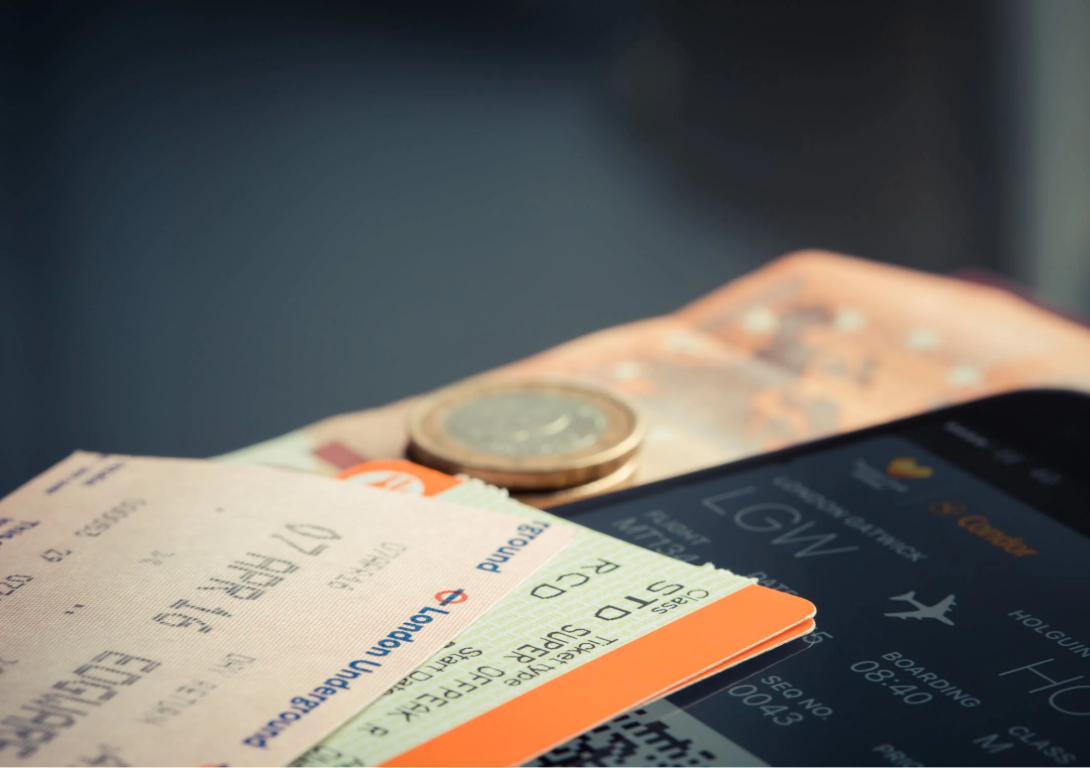CONTENTS
What Is Skiplagging And Why Is It Frowned Upon
Have you ever wondered if there was a secret way to score cheaper flights? Regarding flying, a term that's been making waves among savvy travellers seeking to save money and maximise their adventures: Skiplagging.
But what is skiplagging? Well, skiplagging is a deceptively simple concept. This strategy involves booking a flight with a layover in your desired destination, with the intention of disembarking at the layover city instead of continuing to the final destination.
In recent years, skiplagging has gained popularity because it allows travellers to achieve substantial cost savings while maintaining flexibility in their travel plans. With all these benefits, does it come with a catch? Let’s find out in this blog post.
How Skiplagging Works

Skiplagging (or hidden-city flying) works by exploiting pricing disparities in airfare between different destinations. Airlines often price flights based on demand for specific routes. And sometimes, it's cheaper to book a flight with a layover in your desired destination than a direct flight.
You purchase a ticket with a layover at your actual destination and then skip the final leg of the journey.
For instance, if you're travelling from New York to Paris, you might book a flight to Rome with a layover in Paris and simply not board the connecting flight. The magic? Often, these multi-leg flights are cheaper than direct ones.
Why does skiplagging work? Airlines have a complex pricing algorithm. Sometimes, due to competition or other market dynamics, it's cheaper to fly to a more popular destination via a less popular one. This quirk in the system is where skiplagging comes into play.
Skiplagging: What Are The Risks?
That is not to mention that skiplagging comes with multiple inconveniences, such as no checked baggage or limited destinations. Though it can be tempting to start skiplagging immediately, it's best to not resort to this method as it comes with many setbacks we think that's not worth it.
Alternatives To Skiplagging For Finding Affordable Flights

While skiplagging has gained popularity as a strategy to save money on flights, it is not always the best option. There are alternative methods you can opt for without resorting to skiplagging.
1. Use Flight Search Engines
Every savvy traveller knows using flight search engines is the best way to save big on your flight bookings. Some good websites to start are Kayak, Skyscanner, and Google Flights. These platforms take the hassle out of searching for flight routes, allowing you to explore different options and compare prices.
Simply enter your desired destination and these sites will show you all the possibilities, which you can then use filters to find the best option for your needs. This may require a bit of research effort, but the savings can be well worth it.
2. Book Your Tickets Early
The key to cost saving is shopping around for cheap flight tickets, so do it as early as you can. Why so? This is because airlines often release more expensive tickets as they get closer to the departure date, so if you wait until then to book, you could miss out on a great deal. The recommended period is at least one month before, even sooner for international flights.
Booking your tickets early will also allow you to plan ahead and take care of any other arrangements needed for your trip.
3. Be Flexible With Dates And Times
It's always a good idea to be open to flexible travel dates and times. Flying on weekdays, during off-peak hours, or outside of major holidays can often result in lower fares. If you don't mind sleeping overnight on the plane, red eye flights are generally more budget-friendly than others.
You can use the fare calendars on flight booking websites to see the price fluctuations over a range of dates. Choose the ones that work best for you and plan your trip accordingly.
4. Travel Light

If you're a frequent flyer and want to skip the hassles, travelling with carry-on luggage only is the golden rule. Backpackers are a typical example of people who know how to take advantage of this. Not only are you free from substantial baggage fees, you can benefit from it in many ways.
Travelling with carry-on luggage speeds up your airport experience, as you won't need to wait at the baggage claim. Having a good carry-on backpack also makes it easier to manage your belongings during the trip. So you should invest in a quality one now.
FAQ
1. What Does Skiplagging Mean?
Skiplagging, also known as hidden city ticketing, refers to the practice of booking a flight with a layover in your desired destination, intending to disembark at the layover city instead of continuing to the final destination. It is a strategy employed by travellers to save money on airfare.
2. Is Skiplagging Legal?
The legality of skiplagging is a grey area. While it is not illegal, airlines typically frown upon it and have policies against it. While you won't face legal repercussions, you may encounter consequences such as voided tickets, loss of frequent flyer miles, or difficulties with future bookings.
Travellers should be aware of these potential penalties and ethical considerations when using this strategy.
3. Why Do Airlines Hate Skiplagging?
Airlines have strong disapproval of skip-lagging, primarily due to the way it disrupts their revenue model and booking system.
While passengers may view skip-lagging as a way to save money, airlines consider it a violation of their policies and pricing strategies, which they have established to maintain profitability and order in the travel industry.
4. What Happens If You Get Caught Skiplagging?
If you try to violate airline policies for economic advantage and get caught, you are likely to be flagged, leading to more trouble with future bookings. The consequences vary depend on the airline.
At best, skip-lagging will result in being denied boarding and possibly having to pay for the seat or flight itself. There is also the possibility of being banned from flying (for a small period of time or forever depending on how bad it was) and even getting sued. You can save some money, but is it worth it?
5. Do You Get Charged For Skipping A Flight?
Airlines normally do not impose charges for skipping a flight. However, you may lose the value of the unused portion of your ticket, especially if you've booked a round-trip ticket and you skip the outbound flight. In most cases, airlines do not provide refunds or compensation for unused segments.

Understand Skiplagging And Its Controversies
Skiplagging offers a tantalising opportunity for travellers seeking to unlock significant savings on airfare. From airlines’ perspectives, however, it goes against the terms and conditions. Until today skiplagging remains a controversial practice regarding legal and ethical considerations.
Now that you know what is skiplagging, it's important to weigh the pros and cons and determine if it works with your travel plans. Cheap tickets may sound tempting, but this strategy isn’t ideal and has limitations.
Have you heard of skiplagging before? What is your opinion of this practice? Are there other travel hacks you'd like to explore? Feel free to comment below and share our post, and we will come back to you with more travel info and budget travel tips!
Nhung Le














Leave a comment